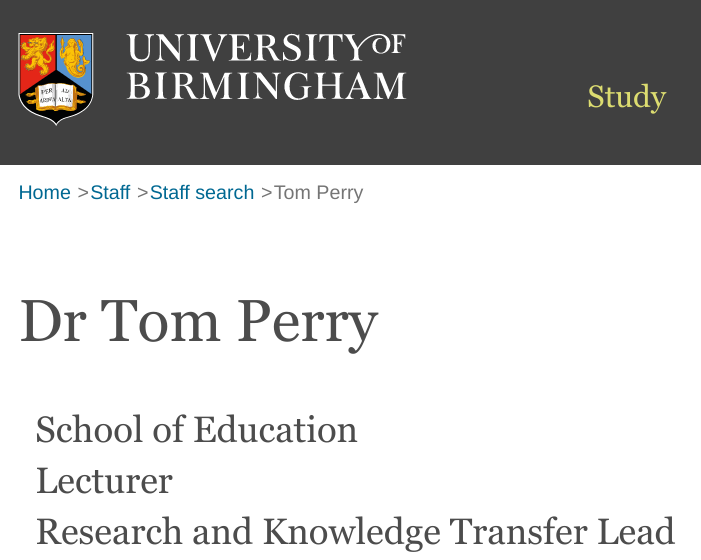If you are interested in “Cognitive Science in the Classroom” then the #RushHourResearch presentation from Dr Tom Perry (08.07.21) is an interesting hours watch. Particularly the headlines.
Headlines
- Teachers should have working knowledge of cognitive science principles. But also it’s gaps and limitations.
- Cognitive science does matter it does seem to affect rates of learning substantially.
- That said, Dr Perry cautioned, the applied evidence is more limited, more complex and less positive, than you would think, reading of the popularised science and the basic science.
- There were some really important gaps for subject areas and age groups.
- Science and maths (Secondary) over represented.
- There are lots of clustered interacting principles. To which my immediate response is – yes. Teaching is messy.
Without a shadow of a doubt, the final comment is the most important. On the whole, applied evidence appears “low.” To which Dr Perry clearly recognises, classrooms are “complex environments.” — It is why researchers prefer to do research in a lab and less frequently with the even more unpredictable and even more messy, smaller schoolers (or subject areas.)
I will note the importance of spacing learning over time. I would add to that, Successive Relearning.
More research examining their impact in real classroom conditions, where they are employed by teachers over time, is needed.
I look forward to reading the review next Friday and seeing the concept and literature map (even given the with mixed evidence).



Pingback: The EEF Report published | KristianStill